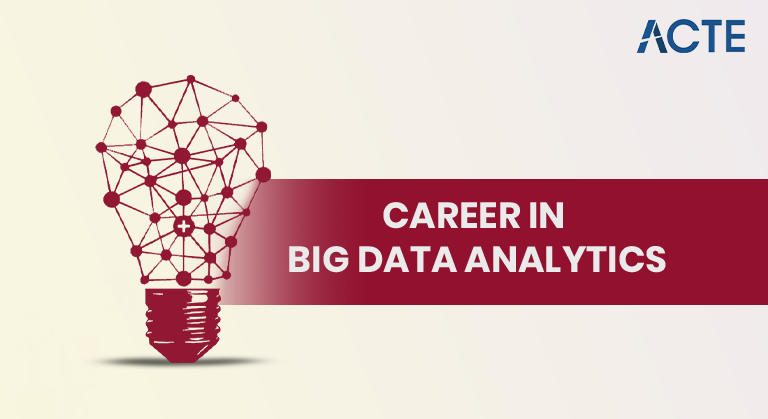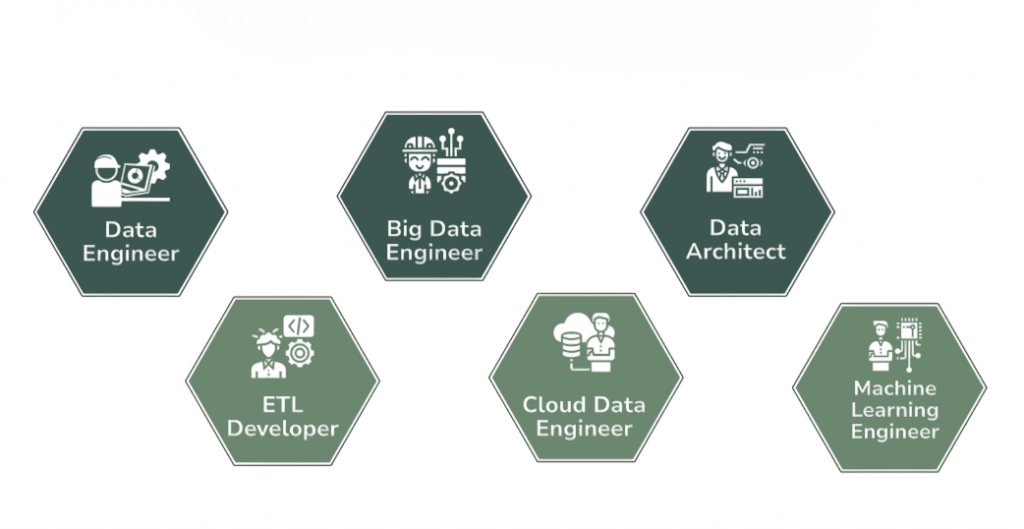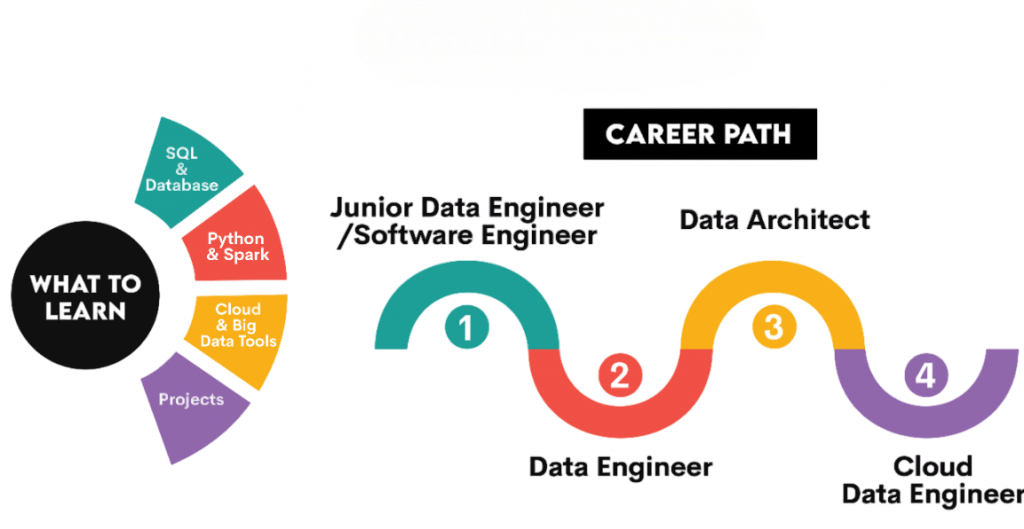
- Introduction to the Field
- Career in Big Data Analytics and Options
- Required Education and Skills
- Learning Resources and Courses
- Certification Options
- Key Tools and Platforms
- Real-World Applications
- Industry Demand and Salaries
- Career Progression Path
- Conclusion
Introduction to the Field
Big Data Analytics refers to the process of examining large and complex data sets to uncover hidden patterns, correlations, trends, and actionable insights. In the current data-driven world, businesses and governments generate a massive amount of data from multiple sources such as websites, mobile applications, sensors, social media, and enterprise systems. Harnessing this data effectively allows organizations to make smarter decisions, improve operations, personalize customer experiences, and gain a competitive edge. Data Analytics Training empowers professionals to turn raw data into strategic assets teaching them how to apply statistical methods, visualization tools, and predictive models to solve real-world business challenges. With the exponential growth of digital data, Big Data Analytics has become one of the most crucial areas in technology and business. It is not just about managing data but about deriving meaningful intelligence that leads to informed actions. From helping companies reduce operational costs to predicting future market trends, Big Data Analytics serves as the backbone of modern data strategy.
Career in Big Data Analytics and Options
The Career in Big Data Analytics is broad and diverse. Various roles exist based on one’s area of interest, technical background, and business acumen. Some of the most sought-after roles include Data Scientist, Hadoop Administrator, and Business Intelligence Analyst. Big Data Certification Guide helps professionals identify the right credentials to match their goals covering industry-recognized programs that validate expertise across data engineering, analytics, and architecture.

- Data Analyst: Focuses on interpreting data, generating reports, and delivering insights for day-to-day business decisions.
- Business Analyst: Bridges the gap between IT and business by assessing processes and providing data-driven recommendations.
- Data Scientist: Specializes in predictive modeling, machine learning, and statistical analysis to solve complex business problems.
- Big Data Engineer: Builds scalable data pipelines and infrastructure using frameworks like Hadoop, Spark, and Kafka.
- Data Architect: Designs and maintains the overall structure of data management systems.
- Machine Learning Engineer: Develops algorithms and models that can learn from data and make predictions.
- BI Developer: Creates dashboards and visualizations using tools like Tableau and Power BI.
- Data Consultant: Offers specialized services to organizations in need of setting up analytics solutions.
Each of these roles contributes to a larger data ecosystem and offers tremendous growth potential.
Interested in Obtaining Your Data Analyst Certificate? View The Data Analytics Online Training Offered By ACTE Right Now!
Required Education and Skills
A career in Big Data Analytics starts with a strong educational background, often in mathematics, statistics, computer science, or engineering. A bachelor’s degree is usually the minimum requirement, but many employers now prefer candidates with master’s degrees or specific certifications. To thrive in this field, you need a variety of technical skills. Being skilled in programming languages such as Python, R, Scala, and Java is vital for data processing and analysis. It’s also important to be familiar with data management systems, including SQL and NoSQL. Data Analytics Training provides structured learning paths to master these tools empowering professionals to build scalable solutions and drive data-informed strategies across industries. Big Data frameworks like Hadoop and Apache Spark are key for handling large datasets, while visualization tools such as Power BI and Tableau are useful for presenting this data clearly. Knowledge of machine learning libraries like scikit-learn and TensorFlow can also be helpful. Additionally, understanding cloud platforms like AWS, Azure, and Google Cloud can give you an advantage.
To Explore Data Analyst in Depth, Check Out Our Comprehensive Data Analytics Online Training To Gain Insights From Our Experts!
Learning Resources and Courses
Aspiring data professionals can find many learning resources online and offline to help them grow in their careers. Platforms like Coursera offer certificates from well-known universities, including Stanford, as well as institutions like Google and IBM. This makes it easier to build a solid foundation. edX provides programs from respected schools such as Harvard and MIT, with a focus on data analytics and science. For practical, skill-based learning, Udemy is a great option with its affordable courses that emphasize hands-on projects. DataCamp stands out by offering interactive coding lessons in popular languages such as Python, R, and SQL. To understand the broader context behind these tools, What is Big Data Analytics breaks down how massive datasets are processed, interpreted, and leveraged to drive business decisions across industries. Additionally, Simplilearn and Great Learning focus on training programs that prepare students for jobs and even provide placement support for graduates. Many universities now offer specialized degrees in Data Analytics. Free resources like Kaggle and GitHub allow students to practice their skills and collaborate with others in the field.
Certification Options
Certifications are a powerful way to demonstrate your expertise and improve job prospects. Some of the most recognized certifications include those focused on cloud platforms, data engineering, and distributed computing. How to install Apache Spark on Windows provides a hands-on starting point for learners guiding them through setup steps that build confidence before pursuing advanced Spark certifications.
- Google Data Analytics Professional Certificate
- Cloudera Certified Associate (CCA) Data Analyst
- Microsoft Certified: Data Analyst Associate (Power BI)
- IBM Data Science Professional Certificate
- AWS Certified Data Analytics – Specialty
- SAS Certified Advanced Analytics Professional
- Hortonworks Hadoop Developer Certification
These certifications validate your knowledge of tools, platforms, and methodologies, making you a more competitive candidate in the job market.
Gain Your Master’s Certification in Data Analyst Training by Enrolling in Our Data Analyst Master Program Training Course Now!
Key Tools and Platforms
Big Data professionals must be comfortable with a wide array of tools and platforms. Some commonly used ones are:
- Programming Languages: Python, R, Java, Scala
- Frameworks: Apache Hadoop, Spark, Flink
- Databases: MySQL, PostgreSQL, MongoDB, Cassandra
- Data Warehousing: Amazon Redshift, Google BigQuery, Snowflake
- ETL Tools: Talend, Apache NiFi, Informatica
- Visualization: Tableau, Power BI, QlikView
- Cloud Platforms: AWS, Azure, GCP
Proficiency in these tools allows analysts to clean, process, and visualize massive datasets efficiently and effectively.
Are You Preparing for Data Analyst Jobs? Check Out ACTE’s Data Analyst Interview Questions and Answers to Boost Your Preparation!
Real-World Applications
Big Data Analytics has countless real-world applications. In retail, it enables personalized product recommendations and inventory optimization. In healthcare, it supports predictive modeling to improve patient outcomes and optimize hospital resources. In finance, big data helps in fraud detection, risk management, and algorithmic trading. The transportation sector uses it for route optimization and traffic forecasting. Government agencies apply data analytics for census management, urban planning, and public health monitoring. To manage such diverse workloads efficiently, What is Apache Hadoop YARN explains how YARN acts as a resource negotiator enabling multiple data processing engines to run concurrently within a Hadoop cluster. Tech giants like Google, Facebook, Netflix, and Amazon rely heavily on analytics to improve user engagement and operational efficiency. The potential applications are limitless, and businesses in every industry are investing heavily in analytics.
Industry Demand and Salaries
Demand for Big Data Analytics professionals continues to rise across the globe. According to LinkedIn and Glassdoor, roles like Data Scientist and Big Data Engineer are consistently ranked among the most in-demand jobs. Salary packages vary based on experience, location, and skill set:
- Entry-Level Data Analyst: ₹5–8 LPA in India
- Mid-Level Data Scientist: ₹10–20 LPA
- Big Data Engineer: ₹12–25 LPA
- Senior Data Architect: ₹20–35 LPA
- US Market Salaries: $90,000 to $160,000 annually
With rapid digital transformation and increased investment in AI and cloud technologies, these figures are expected to grow further.
Career Progression Path
A typical career path in Big Data Analytics involves multiple stages of growth: starting from data analyst or engineer roles and progressing toward strategic leadership. Who Is a Data Architect clarifies the responsibilities at the top of this ladder focusing on designing data ecosystems, enforcing governance standards, and aligning infrastructure with business goals.

- Intern or Junior Analyst: Entry-level exposure to data analysis and visualization tasks.
- Data Analyst or Engineer: Takes ownership of datasets, develops models, and performs analysis.
- Senior Analyst or Scientist: Leads projects, mentors juniors, and collaborates across departments.
- Data Analytics Manager or Lead: Manages teams, resources, and strategic decisions.
- Chief Data Officer or Director of Analytics: Shapes company-wide data strategy.
Progression depends on continuous learning, project experience, certifications, and leadership capabilities.
Conclusion
A Career in Big Data Analytics is not only rewarding but also future-proof. As the reliance on data continues to grow, so does the demand for skilled professionals who can derive value from that data. The industry offers a wide range of career paths, from technical roles to leadership positions. Data Analytics Training helps professionals navigate this spectrum building core competencies in data handling, visualization, and strategy that are essential for both hands-on execution and high-level decision-making. With a mix of technical skills, practical experience, certifications, and a proactive mindset, you can build a successful and fulfilling career in Big Data Analytics. Now is the time to invest in learning, networking, and upskilling to stay ahead in this dynamic and evolving field.


